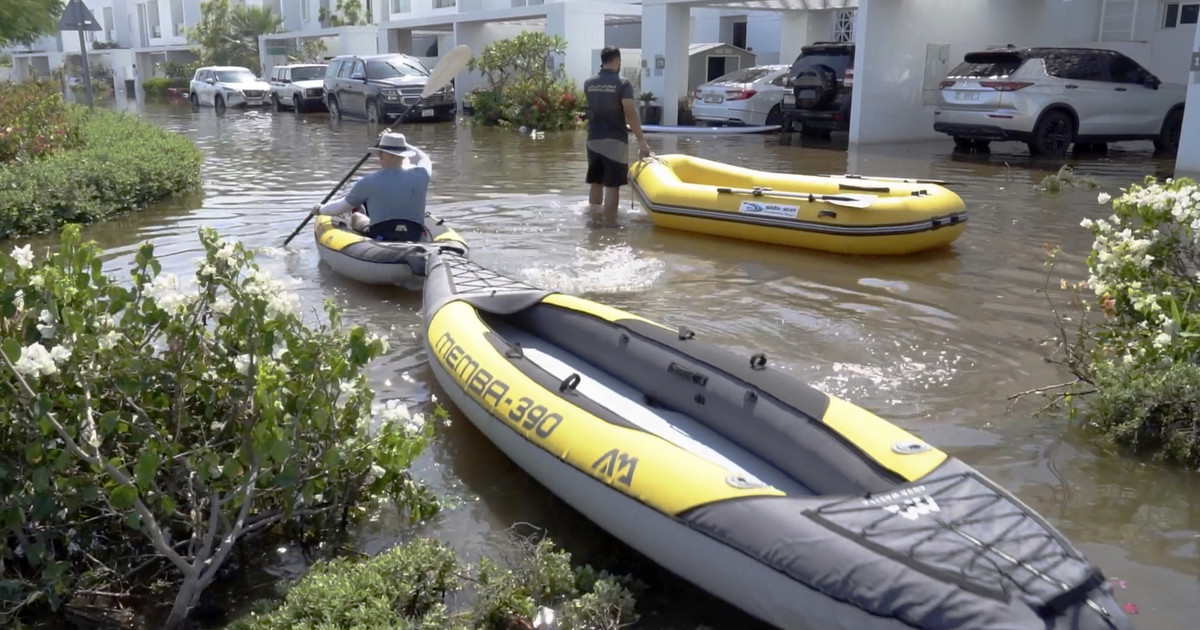The faces of Australian election candidates are plastered on political campaign posters across the country — but there is one face that stands out: Xi Jinping.
The Chinese leader, while not a member of any modern democracy, has become a familiar presence in a campaign dogged by allegations of foreign interference and partly countered on national security issues.
Xi’s face isn’t just on billboards, his name has appeared in press conferences, interviews and election debates between Australian Prime Minister Scott Morrison, who leads a liberal-national coalition, and Labor Party leader Anthony Albanese, who want to replace it.
“Xi changed the nature of the Chinese Communist Party […] Exercise more initiative. It’s more aggressive. And that means Australia, of course, must respond,” Albanese said during a leaders’ debate, in words that seemed to echo the government’s tough stance.
Even before the federal election campaign began, accusations were launched that China wanted a Labor Party victory. With a week to go before the vote, which takes place on May 21, public opinion polls – though notoriously unreliable – suggest this could indeed happen, putting a Labor government in power for the first time since 2013.
How this might change Australia’s relationship with China has been a common question ahead of the vote.
The coalition has suggested that Labor will be soft on China – a serious indictment by a government whose defense minister recently warned that, to preserve peace, Australia must “prepare for war”.
On paper, there appears to be little difference in foreign policy between the two main parties. Labor says it is committed to the AUKUS security pact, the deal Morrison made with the United States and Britain, to the detriment of Australia’s relations with France. And both support the Quad partnership, a loose four-way alliance between Australia, the United States, India and Japan that is due to meet in Tokyo next week after the election.
It remains unclear who will appear on Australia’s behalf, but analysts say that person faces a difficult challenge when it comes to China — especially after a bitter election campaign that has put Xi and his intentions at the forefront.
development of relationships
China would always play a role in Australian elections as a regional heavyweight with significant trade ties to a smaller nation it depends on for iron ore and coal, if not other sanctioned exports.
Xi’s rise to power in China lines up perfectly with the coalition’s last term in office — they both took office in 2013 and since then relations have deteriorated, more rapidly in the past six years.
Part of the rift dates back to 2016, when links emerged between a senior Labor senator and a wealthy Chinese businessman, leading to a closer inspection of alleged foreign political interference.
Under then-Liberal Prime Minister Malcolm Turnbull, laws were passed that barred foreigners from donating to Australian political campaigns, among other measures, and a ban was imposed on Chinese telecom giants Huawei and ZTE from building Australia’s 5G network.
After the 5G ban, China’s foreign affairs spokesperson urged the country to “abandon (its) ideological prejudices”.
Relations soured even further in 2020 when the Australian government — then led by Morrison — called for an investigation into the origins of Covid-19. China responded with sanctions against Australian exports, including beef, barley, wine and lobster.
Charles Edel, senior adviser and first director on Australia at the Center for Strategic and International Studies (CSIS), said China’s goal was to make Australia more compliant, but that didn’t work.
“It had the opposite effect,” he said. “It has hardened public attitudes in Australia and pushed Canberra to lead the charge against China’s coercive actions.”
According to a survey of China of Australians by the Lowy Institute, in 2021, the vast majority pointed negatively about China’s system of government and China’s military activity in the region, while positive about the people and the country. Chinese culture.
China’s tacit support for Russia’s actions in Ukraine also hardened attitudes, and the Australian government rushed to provide Ukraine with tanks, coal and humanitarian aid.
While the sanctions have undoubtedly hurt Australian companies, the loss of the Chinese market has forced some to diversify and they have found substitute markets. Meanwhile, China continues to buy iron ore from Australia at near-record prices. So in that respect, Australia didn’t lose.
Edel says that, in fact, Australia’s tough response to Beijing’s coercion has created another model for countries in the region to follow.
“Australia has reacted to a deteriorating strategic environment by investing in its own capabilities, increasing its cooperation with the United States and seeking to strengthen its connections with other countries in the region,” he said.
“Pursuing a proactive foreign policy while investing in your own resilience offers a model for other states under pressure from revisionist powers.”
chances of fresh start
But there is no consensus on the success of the Morrison administration’s approach to China. During the election campaign, even as the coalition praised its superior expertise in foreign affairs, Beijing signed a security pact with the Solomon Islands, a Pacific island nation that also has a security agreement with Canberra.
Suddenly, the specter of a Chinese military base in a nation just 2,000 kilometers off the coast of Australia became a real election issue – even as the Solomon Islands and Beijing denied they had such plans.
The issue was so controversial that in the first few weeks of the campaign, mentions of China and the Solomon Islands surpassed those of climate change in Australian media, according to media monitoring data firm Isentia.
Labor criticized the deal as “a huge foreign policy failure” that came despite warnings about Honiara closing in on China.
In the heat of an election campaign, it behooves Labor to draw attention to the failings of the coalition’s foreign policy – indeed, the timing of the deal was so opportune for Labor that Home Secretary Karen Andrews speculated, without evidence, that it was deliberately timed by Beijing to take place just weeks before the vote – a claim that Labor has attacked, calling it “unbalanced”.
Both sides say that “China has changed”. In recent years, Beijing has intensified militarization of the South China Sea, committed alleged human rights abuses against the ethnic minority Uighur population in Xinjiang and clamped down on freedoms in Hong Kong, where police recently arrested a 90-year-old cardinal under the laws. of national security.
But James Laurenceson, director of the Institute of Australia-China Relations, said the Morrison government must accept some responsibility for the deterioration of relations.
“Rhetoric, posturing and lack of diplomacy played a very important role in how we got there,” he said.
“We don’t just protect our sovereignty. We take a risk in front of every other country in the region to, I would say, be quite provocative,” he said, citing as an example Defense Minister Peter Dutton’s comment that Australia should “prepare for war”. .
Laurenceson does not see relations with Beijing improving under a re-elected Morrison government. “I think they’ve given up on the Morrison government,” he said, but added that a Labor victory wouldn’t necessarily mean a fresh start either.
“No one is talking about going back to how the world was five years ago. But putting our relationship in a less adversarial position, I think is within our capacity. And I think Labor has options where it can make some subtle changes to its diplomacy and that will make that a realistic option.”
In an opinion piece published in Australian media last week, China’s ambassador to Australia, Xiao Qian, said that Canberra should not see the “rise of China” as a threat.
“Cooperation between China and South Pacific island countries is conducive to the well-being of people on both sides and to regional prosperity and stability, and will in no way threaten Australia’s security,” he wrote.
where to go from here
Under Australian law, there are no rules about telling the truth in political advertising, so using Xi’s image on posters claiming he supports candidates of various political persuasions is entirely legal.
Xi’s face is not only on political ads claiming he supports the Labor Party, but also on billboards claiming he is supporting a liberal candidate as well as at least one independent. Appealing to Xi, it seems, is the ultimate political insult.
Andrew Hughes, a marketing expert at the Australian National University, says Australia is known as a “lawless land” when it comes to political advertising, but China’s use in this campaign was notable.
“It’s actually more noticeable, I think, in this election than you’ve ever seen the use of a foreign government in non-war election campaigns,” Hughes said.
Hughes said the coalition was using China to make the connection in people’s minds that “Labour equals fear”, although he questioned the effectiveness of that strategy with an audience that is only partially paying attention to the issues.
“Most people don’t have that level of involvement with politics in the first place to make this message effective. So (the coalition) is probably getting a little more negative and a little tougher on things.”
CSIS’ Edel said that no matter who wins, Australia has a real chance to improve its relationship if it stands firm, and that is possible under any leadership.
“While there may be differences in tone and approach, both sides now support increasing Australia’s defense budget, working more closely with the United States and other like-minded countries, countering China’s onslaught in the Pacific, denouncing the egregious Beijing’s human rights violations and acting to protect Australia’s democracy,” he said.
However, Laurenceson said a calmer approach and the realization that Australia cannot dictate China’s relationships in the Pacific would go a long way toward putting the relationship on a firmer footing.
“There is a history of overreaction and panic, for sure. And how does that really help you answer?” he said. “Having a strategy aimed at denying Beijing’s enhanced relationships in the region is simply ridiculous. It’s unreal. So yes, let’s take it seriously, let’s respond with a clear strategy. But we will make sure that our assessments and our strategy are at least based on reality.”
Source: CNN Brasil
I’m James Harper, a highly experienced and accomplished news writer for World Stock Market. I have been writing in the Politics section of the website for over five years, providing readers with up-to-date and insightful information about current events in politics. My work is widely read and respected by many industry professionals as well as laymen.






